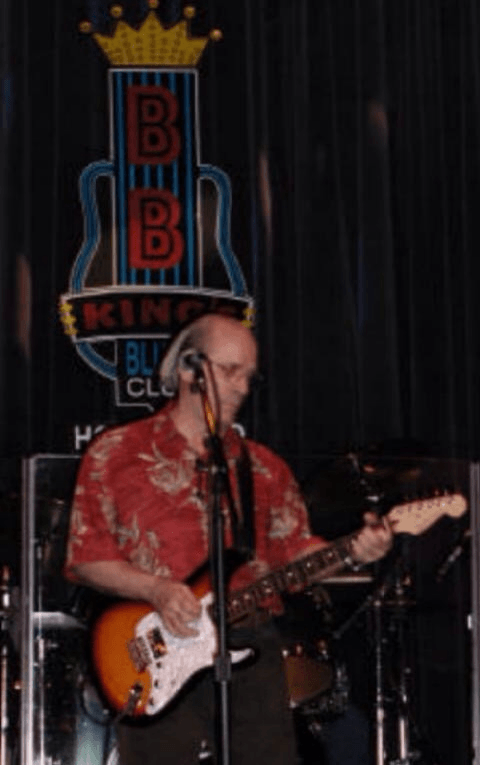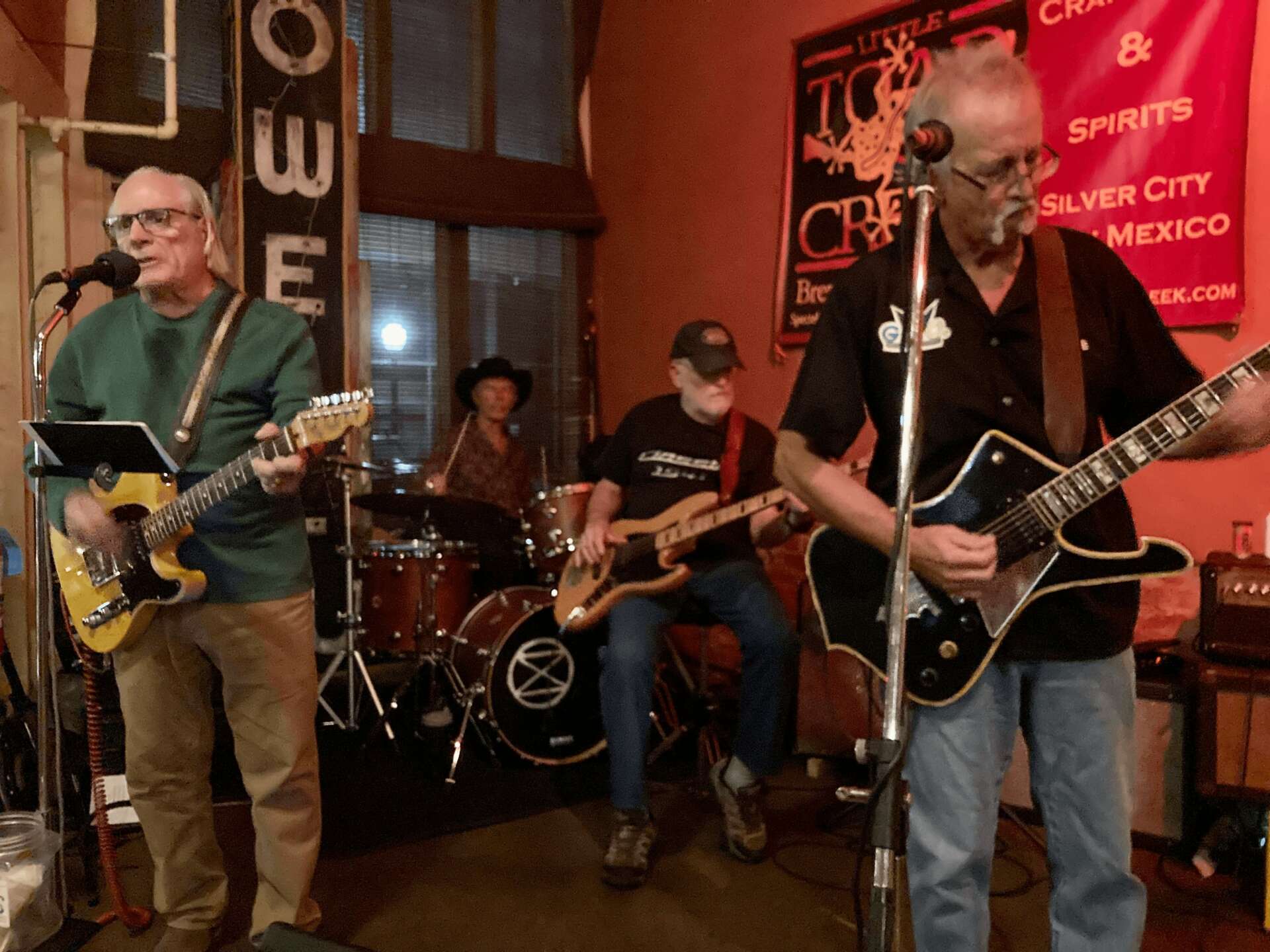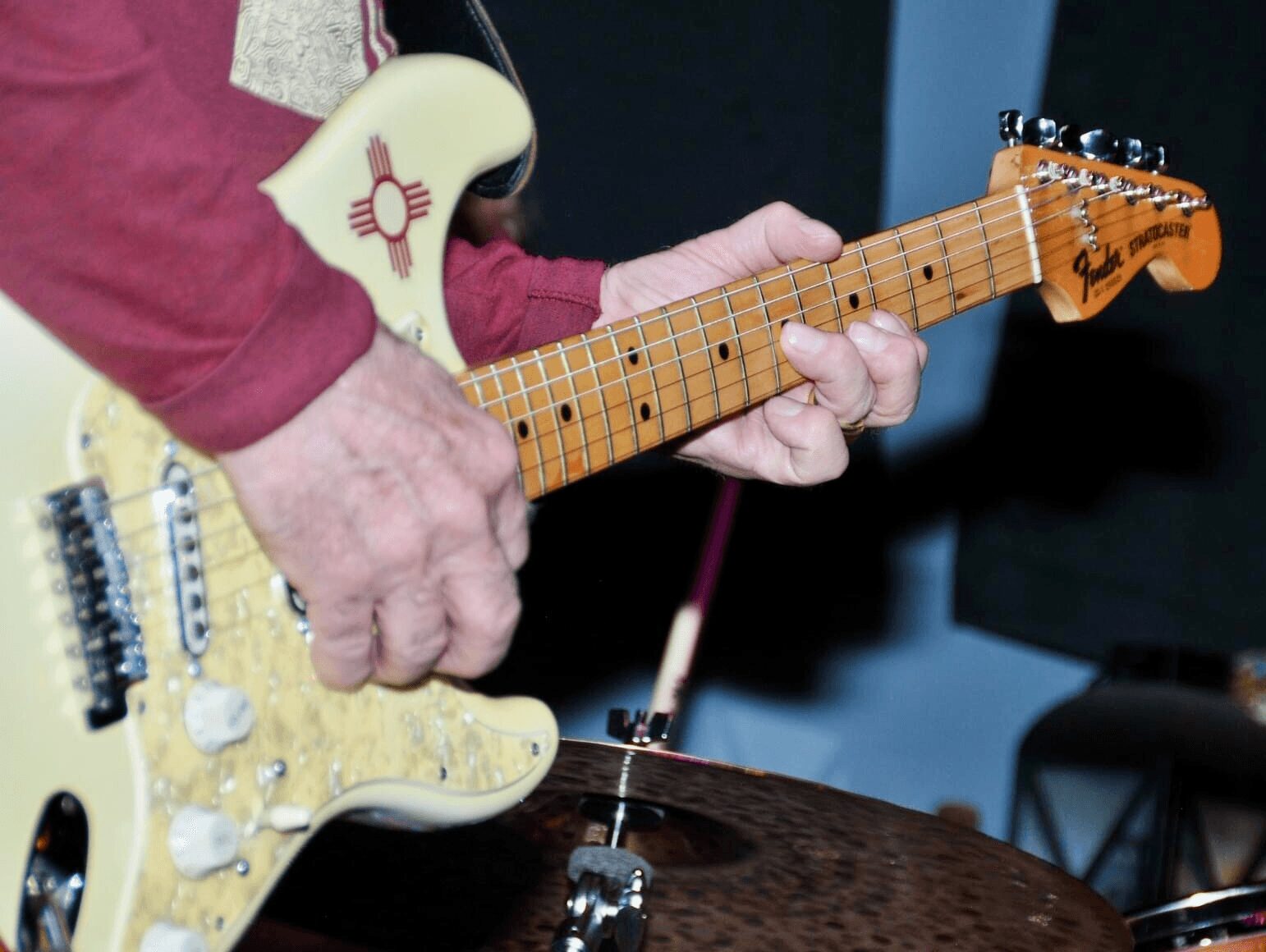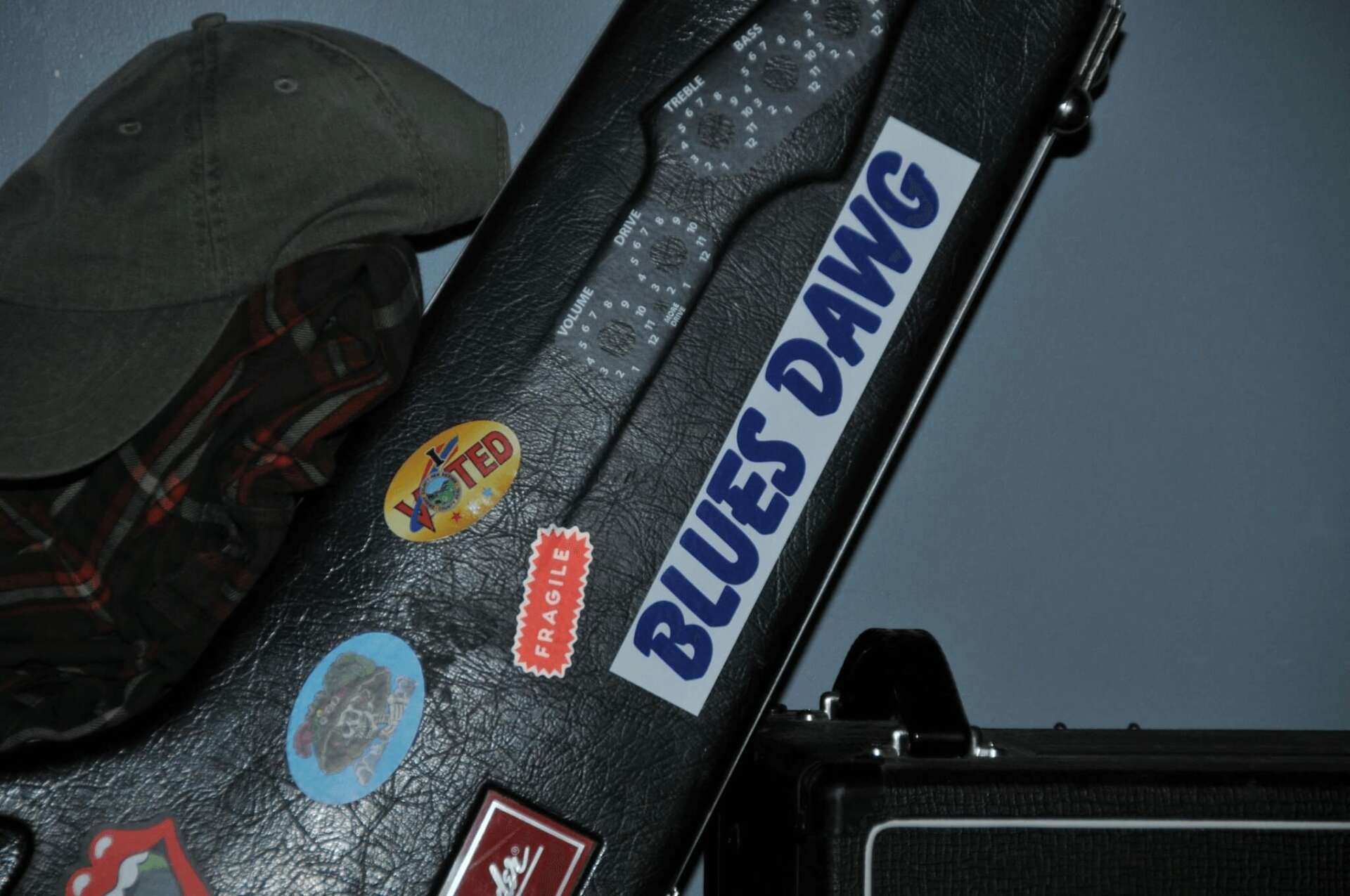Alright – so today we’ve got the honor of introducing you to Joe Neri. We think you’ll enjoy our conversation, we’ve shared it below.
Joe, thanks for taking the time to share your stories with us today Can you talk to us about how you learned to do what you do?
Like millions of people, I’ve played guitar most of my life, starting at age 9 with a hand-me-down guitar with 2 broken strings, to my first real guitar purchased in Greenwich Village (NYC) when I was 14. For most of the next three decades, I played guitar but was not a musician. Guitar and music were a part of my life but not yet an important part.
I was living in Los Angeles in 1994 when the 6.7 magnitude Northridge earthquake hit, damaging my home and destroying pretty much everything in it. It was 45 seconds of terror at 4:30 in the morning on January 17. The rather large aftershocks continued for weeks and months afterwards, My nerves were shattered, and I decided I needed some kind of therapy. Then and there, I decided to get serious about playing guitar, particularly blues guitar, to get me through the trauma.
For the next two years, I took weekly lessons from blues master, Fran Banish, at McCabe’s Guitar Shop in Santa Monica. Fran was not just a true master of guitar, both acoustic and electric, but he was an incredibly good teacher. I absorbed everything he threw at me and practiced for tens of hours every week between lessons. I had a full-time job at the time, so I literally practiced almost every other waking hour of the day.
In 1996, Fran told me that I didn’t need any more lessons. He fired me! But he told me that the only way I was going to get really good at my new artistic craft was to go out and find other musicians to play with. But, he added, make sure those other musicians were better than me so I could continue to learn.
For the next couple of years I jammed with 4 other players – 2 guitars, a bass and harmonica players. In 1998, one of the guitar players quit. We found ourselves a drummer and hit the local bars as the newest blues band in town – Blues Dawg.
Taking formal and regular lessons really helped my guitar playing. Informal jamming continued my education, but nothing got me to a pro level like playing every week in a band before real live audiences. 26 years later, I’m still learning and growing as a blues guitar-playing musician.

Joe, love having you share your insights with us. Before we ask you more questions, maybe you can take a moment to introduce yourself to our readers who might have missed our earlier conversations?
Most of my adult life was spent in California, and most of that in Los Angeles, working in the financial/investment industry. In 1998 I founded my blues band, Blues Dawg and we gigged extensively throughout all of Southern California for the next few years. But my day job was getting increasingly stressful, particularly after the stock market crashes of March and September (9/11) 2001. My wife, who is a published mystery and fantasy writer, and I decided to “cash in our chips” and find an easier way to live.
It took us a few more years to fully figure things out, but in 2005 we moved to Sedona, AZ and opened an independent, general-interest bookstore – The Well Red Coyote. Both of us worked the store, but she had plenty of time to write, teach, promote and tour, and I re-formed Blues Dawg in Arizona – me plus 3 other local musicians.
During the next 13+ years, in addition to gigging throughout Northern Arizona (and sometimes as far south as Phoenix) with my band, I founded the Old Town Blues Fest (which ran successfully for 8 years); I hosted a monthly blues jam at several of the local bars and clubs (which ran successfully for 10 years); and I produced a Holiday Blues Revue show (which ran successfully for 8 years).
In addition to the blues, I am also a huge Bob Dylan fan, so in 2006 I began producing and performing in an annual Bob Dylan Birthday Concert, taking place on or around May 24 – Dylan’s birthday. This very popular show, which involves a dozen or so local musicians each year, is still going strong, having just celebrated its 19th year.
Amazon and the Internet pretty much killed the local, retail, brick-and-mortar bookstore business, so my wife and I closed our store and moved to Silver City, NM in 2018. At that time, Sedona had become a tourist Mecca and we found a very artistic but laid-back community in Silver City. She continues to write and teach, and I am a full-time musician, having re-formed Blues Dawg for the second time. The band gigs extensively throughout southwest New Mexico and was featured in the 2023 Silver City Blues Festival. I also host a weekly blues show on our local radio station.

In your view, what can society to do to best support artists, creatives and a thriving creative ecosystem?
My artistic world revolves around live music performances in front of live audiences. That is what I thrive, that is what makes me happy. It is not an ego thing – I’m not prancing on stage saying “hey world, look at me.” Rather I’m using that stage and my music to connect with individuals in the audience to give them some momentary pleasure and respite from whatever problems might be in their lives.
Unfortunately, our society and culture has become digitized – everyone gets their kicks from being connected on the multitude of social media platforms and the internet in general. We as a society and culture have devolved into short attention spans and instant gratification cravings, and expect to download the various forms of the arts for free.
Back a couple of hundred years ago, artists required patrons in order to survive. Now we have GoFundMe and Patreon. Let’s face it, society has never fully supported the arts, and probably never will.
So, in 2024, if you want to support the arts, go to live music performances (and tip the performers, if possible). Go to art galleries and art shows. Go to bookstores and book-signings, and buy a real page-turning physical book. Go to the movies instead of watching Netflix on your computer. Support your local artisans, crafts-people, etc. Go to your local craft shows and farmers markets.
As to working musicians (and other artists) like me, we’ll keep performing. It’s what we do.

Learning and unlearning are both critical parts of growth – can you share a story of a time when you had to unlearn a lesson?
As the frontman and manager of a working, gigging band for the last 26 years, one of my jobs is to book gigs, a job that has become increasingly difficult as more and more venues close or stop offering live music, and, since the COVID-19 pandemic, as fewer and fewer folks come out to the bars and clubs.
What I falsely assumed when I started out was that these venue owners and booking agents needed me and my band. What I found out was they didn’t. Venue owners and booking agents couldn’t care less about me, my band and/or how good we were. All they cared about was if we could bring in folks and if those folks would buy food and drinks. We could have been the worst band in the world, but if we “sold beer,” everyone was happy.
What I’ve found out over the years is that the more I obsessed about booking a particular gig, the less likely it was going to happen. If I detached myself from the process, if I actually believed that my life would not end if the gig didn’t get booked, it was more likely to happen.
For the past couple of years, I’ve put booking inquiries out there on a regular basis. I follow up once if I get no response. Then I forget about them. Literally. And, amazingly, most of the inquiries eventually get booked. I’ve been busier in the past three of so years than I’ve ever been before in all of my years of doing this.
Contact Info:
- Facebook: Joe Neri


Image Credits
All images are mine.


